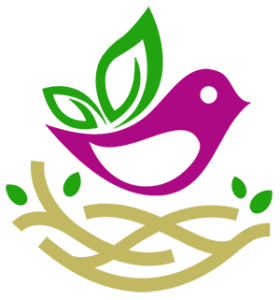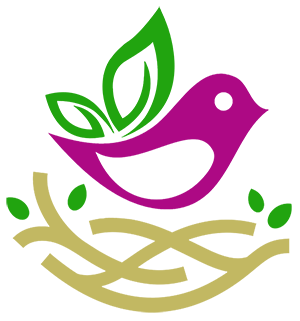Coludang’s Story
The story of “Coludang”, which means “nest” in the local language, unfold as a warm local household that, twig by twig, transformed from a small business into one of Qeshm’s leading tourism operators.
Coludang’s Story
The story of “Coludang”, which means “nest” in the local language, unfold as a warm local household that, twig by twig, transformed from a small business into one of Qeshm’s leading tourism operators.
Coludang is, first and foremost, a family: the Tata Family. The matriarch, Maman Fatemeh, gave Baba Habib three sons – Nooradin, Saddredin and Mahnoor – and two daughters – Ameneh and Niloofar. Since then, the family has grown with weddings and births, but that’s another story…
About ten years ago, Qeshm Island received only a handful of tourists, primarily drawn to Qeshm and Dargahan’s shopping centers. Back then, opportunities for livelihood were scarce, and Nooradin, the eldest son, tried most of them: sailing the sea to catch and sell fish, toiling in stone quarries, driving trucks, and even engaging in contraband – a dangerous yet prevalent means of making a living at the time.
Coludang is, first and foremost, a family: the Tata Family. The matriarch, Maman Fatemeh, gave Baba Habib three sons – Nooradin, Saddredin and Mahnoor – and two daughters – Ameneh and Niloofar. Since then, the family has grown with weddings and births, but that’s another story…
About ten years ago, Qeshm Island received only a handful of tourists, primarily drawn to Qeshm and Dargahan’s shopping centers. Back then, opportunities for livelihood were scarce, and Nooradin, the eldest son, tried most of them: sailing the sea to catch and sell fish, toiling in stone quarries, driving trucks, and even engaging in contraband – a dangerous yet prevalent means of making a living at the time.
It all began with a restaurant
One day, though, Nooradin spotted an opportunity he couldn’t ignore: tourists were looking for a nice place to savor local food. Knowing his mother-in-law’s inimitable cooking skills, they started serving food in the village. Initially, in a garden full of palm trees, and later, in the family’s home. And just like that, the Tatas made their first step in the tourism industry.
Fast-forward two years. Nooradin finds himself in Yazd for a brief visit when he meets a tourist guide. He shares with him the story of his family’s catering activity in Qeshm. Upon returning home, Nooradin receives a phone call from that man: “A Belgian traveler is coming to Qeshm and needs a place to spend the night. Can you do something?”
Without a second thought, Nooradin agreed and transformed the room they had built in their yard for serving lunch into Coludang’s first guest room: Koghar.
It all began with a restaurant
One day, though, Nooradin spotted an opportunity he couldn’t ignore: tourists were looking for a nice place to savor local food. Knowing his mother-in-law’s inimitable cooking skills, they started serving food in the village. Initially, in a garden full of palm trees, and later, in the family’s home. And just like that, the Tatas made their first step in the tourism industry.
Fast-forward two years. Nooradin finds himself in Yazd for a brief visit when he meets a tourist guide. He shares with him the story of his family’s catering activity in Qeshm. Upon returning home, Nooradin receives a phone call from that man: “A Belgian traveler is coming to Qeshm and needs a place to spend the night. Can you do something?”
Without a second thought, Nooradin agreed and transformed the room they had built in their yard for serving lunch into Coludang’s first guest room: Koghar.
And continued as one of Qeshm’s first homestays
That Belgian traveler marked yet another decisive encounter in Coludang’s story.With his blond beard and round glasses, he brimmed with ideas to share with Nooradin. Fortunately, online translations bridged the language gap, allowing the two men to converse. They talked about tourism, of how it can improve people’s lives, and introduced the concept of “homestays”, a term hitherto unfamiliar in Qeshm.
After a few days at Coludang, the traveler continued his journey, leaving in his wake Coludang’s first review on TripAdvisor and WikiTravel. More importantly, he sowed a seed in Nooradin’s mind – one that would grow the size of Coludang’s “Kahoor” tree: running a guesthouse.
And just like this, as more and more foreigners were coming to Qeshm, rooms were added in Coludang, gradually giving the “nest” the cosy shape it now today.
And continued as one of Qeshm’s first homestays
That Belgian traveler marked yet another decisive encounter in Coludang’s story.With his blond beard and round glasses, he brimmed with ideas to share with Nooradin. Fortunately, online translations bridged the language gap, allowing the two men to converse. They talked about tourism, of how it can improve people’s lives, and introduced the concept of “homestays”, a term hitherto unfamiliar in Qeshm.
After a few days at Coludang, the traveler continued his journey, leaving in his wake Coludang’s first review on TripAdvisor and WikiTravel. More importantly, he sowed a seed in Nooradin’s mind – one that would grow the size of Coludang’s “Kahoor” tree: running a guesthouse.
And just like this, as more and more foreigners were coming to Qeshm, rooms were added in Coludang, gradually giving the “nest” the cosy shape it now today.
Calm Waters and Bagap: Coludang’s latest
Following the growth in Qeshm’s tourism, Coludang has evolved into a multifaceted business over the years. In 2019, we introduced Calm Waters, Coludang’s watersports centre located in the Mangrove Forest.
2022 witnessed further enhancements at Coludang: Beds and modern amenities were incorporated into their existing rooms, improving the level of comfort and convenience for our guests.
The same year, a new project sprouted: “Bagap“. In a month of relentless work, just before the beginning of the tourist season, the old house of Maman Fatmeh’s late father was turned into a beautiful private accommodation. “Bagap“, which translates to “Grandpa”, became one of the first private seasonal accommodations on Qeshm Island. A house, that preserves the traditional essence of village houses while seamlessly blending in modern comforts.
Calm Waters and Bagap: Coludang’s latest
Following the growth in Qeshm’s tourism, Coludang has evolved into a multifaceted business over the years. In 2019, we introduced Calm Waters, Coludang’s watersports centre located in the Mangrove Forest.
2022 witnessed further enhancements at Coludang: Beds and modern amenities were incorporated into their existing rooms, improving the level of comfort and convenience for our guests.
The same year, a new project sprouted: “Bagap“. In a month of relentless work, just before the beginning of the tourist season, the old house of Maman Fatmeh’s late father was turned into a beautiful private accommodation. “Bagap“, which translates to “Grandpa”, became one of the first private seasonal accommodations on Qeshm Island. A house, that preserves the traditional essence of village houses while seamlessly blending in modern comforts.
The future is left to write
Today, the Coludang Group provides full-time jobs and salaries to twenty individuals, many of whom proudly bear the family name “Tata”. This commitment aligns with the owner’s vision to empower both kin and local residents from his village.
Yet, the Coludang family has blossomed way beyond the borders of Dehkhoda village, with new team members from neighboring villages and even beyond the borders of Iran.
Still, they all share the same dream: to promote and preserve Qeshm’s vibrant culture through tourism
Today, the Coludang Group provides full-time jobs and salaries to twenty individuals, many of whom proudly bear the family name “Tata”. This commitment aligns with the owner’s vision to empower both kin and local residents from his village.
Yet, the Coludang family has blossomed way beyond the borders of Dehkhoda village, with new team members from neighboring villages and even beyond the borders of Iran.
Still, they all share the same dream: to promote and preserve Qeshm’s vibrant culture through tourism

